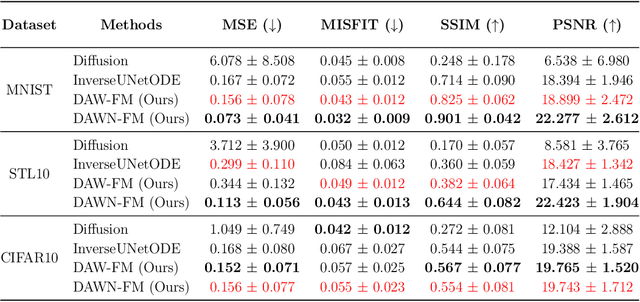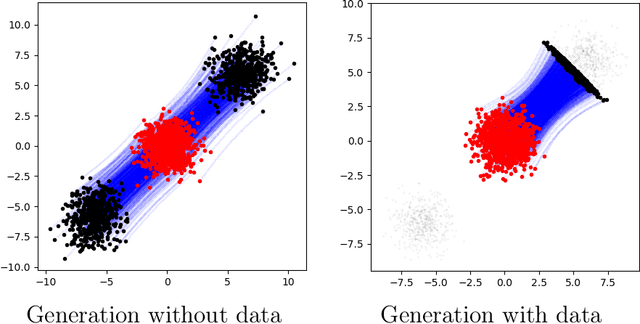DAWN-SI: Data-Aware and Noise-Informed Stochastic Interpolation for Solving Inverse Problems
Paper and Code
Dec 06, 2024



Inverse problems, which involve estimating parameters from incomplete or noisy observations, arise in various fields such as medical imaging, geophysics, and signal processing. These problems are often ill-posed, requiring regularization techniques to stabilize the solution. In this work, we employ $\textit{Stochastic Interpolation}$ (SI), a generative framework that integrates both deterministic and stochastic processes to map a simple reference distribution, such as a Gaussian, to the target distribution. Our method $\textbf{DAWN-SI}$: $\textbf{D}$ata-$\textbf{AW}$are and $\textbf{N}$oise-informed $\textbf{S}$tochastic $\textbf{I}$nterpolation incorporates data and noise embedding, allowing the model to access representations about the measured data explicitly and also account for noise in the observations, making it particularly robust in scenarios where data is noisy or incomplete. By learning a time-dependent velocity field, SI not only provides accurate solutions but also enables uncertainty quantification by generating multiple plausible outcomes. Unlike pre-trained diffusion models, which may struggle in highly ill-posed settings, our approach is trained specifically for each inverse problem and adapts to varying noise levels. We validate the effectiveness and robustness of our method through extensive numerical experiments on tasks such as image deblurring and tomography.
 Add to Chrome
Add to Chrome Add to Firefox
Add to Firefox Add to Edge
Add to Edge